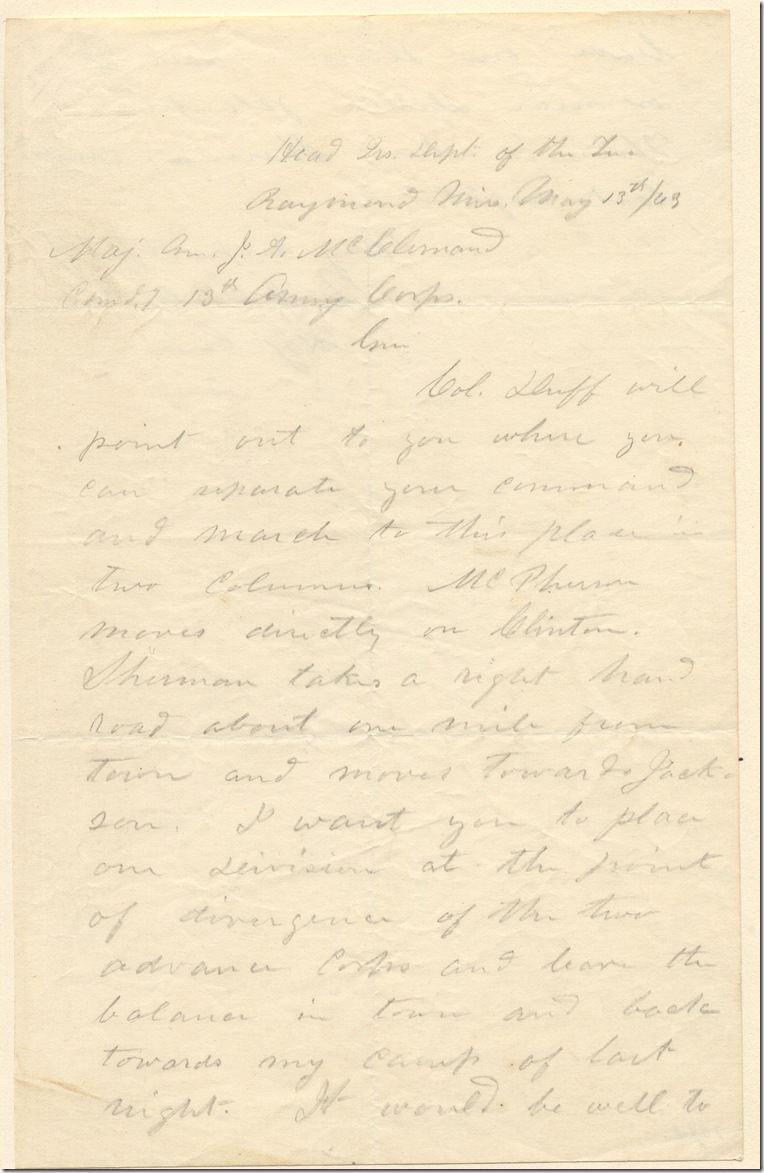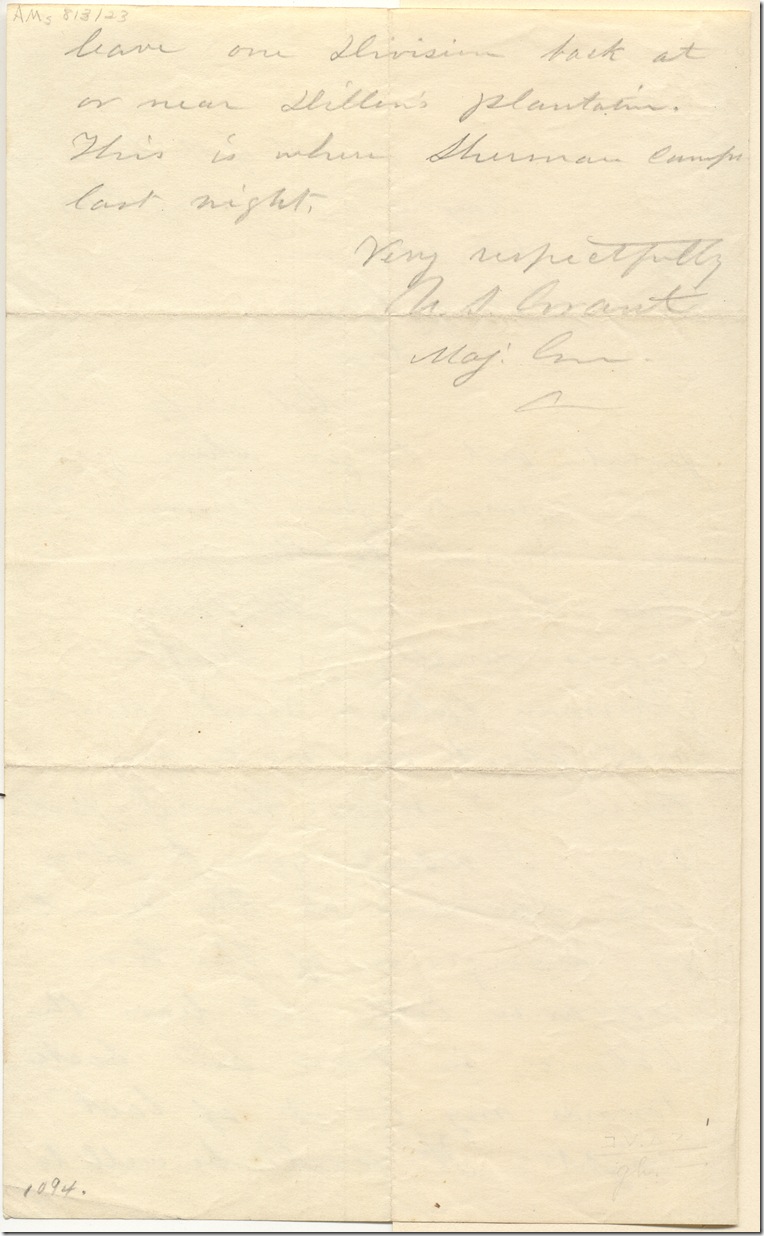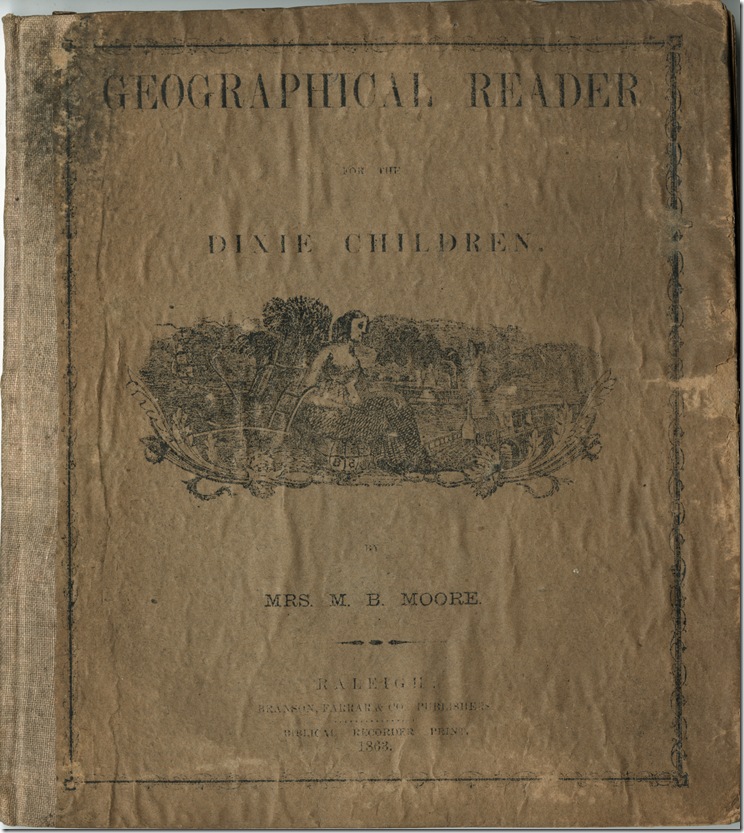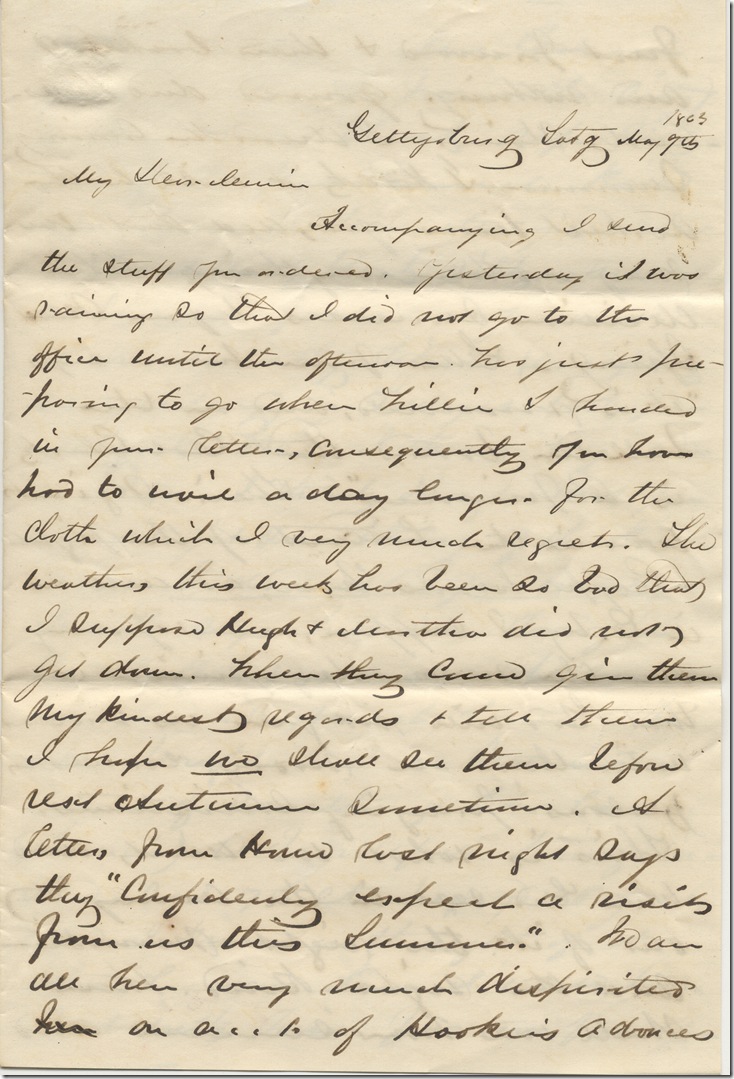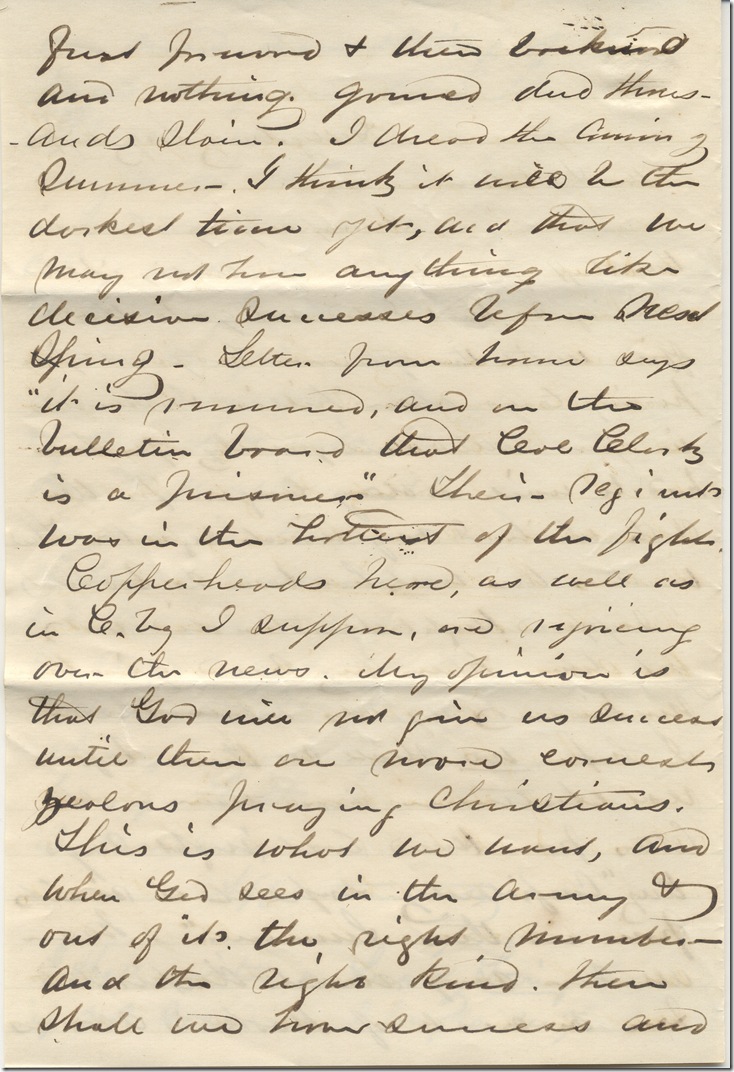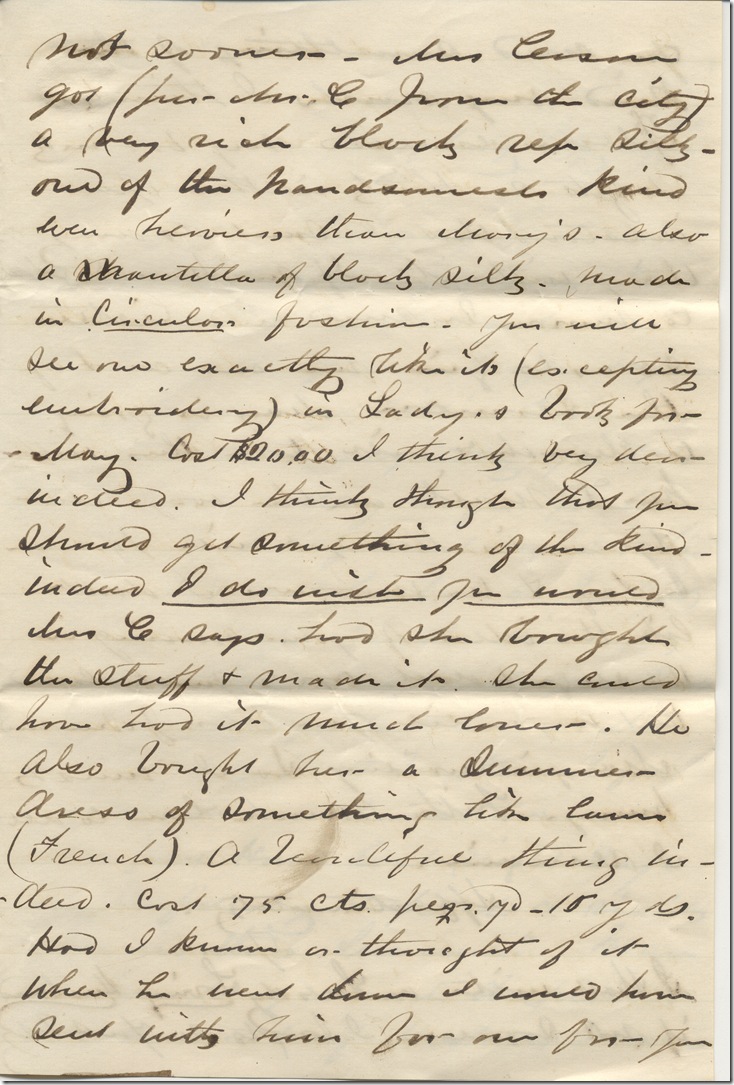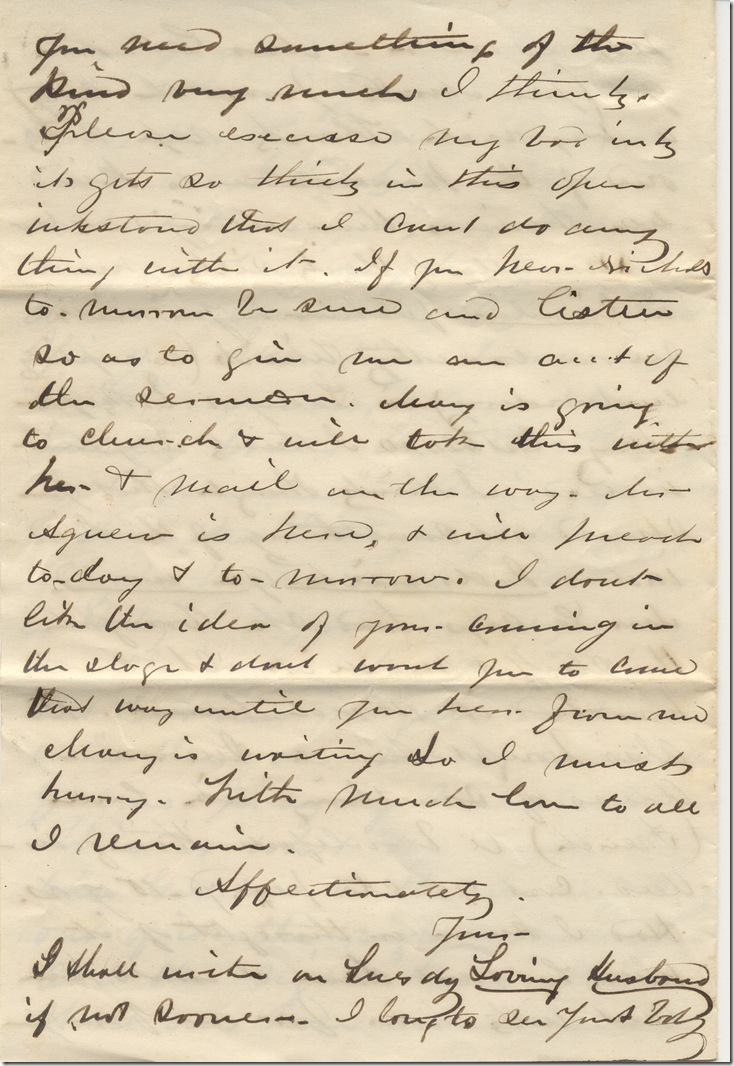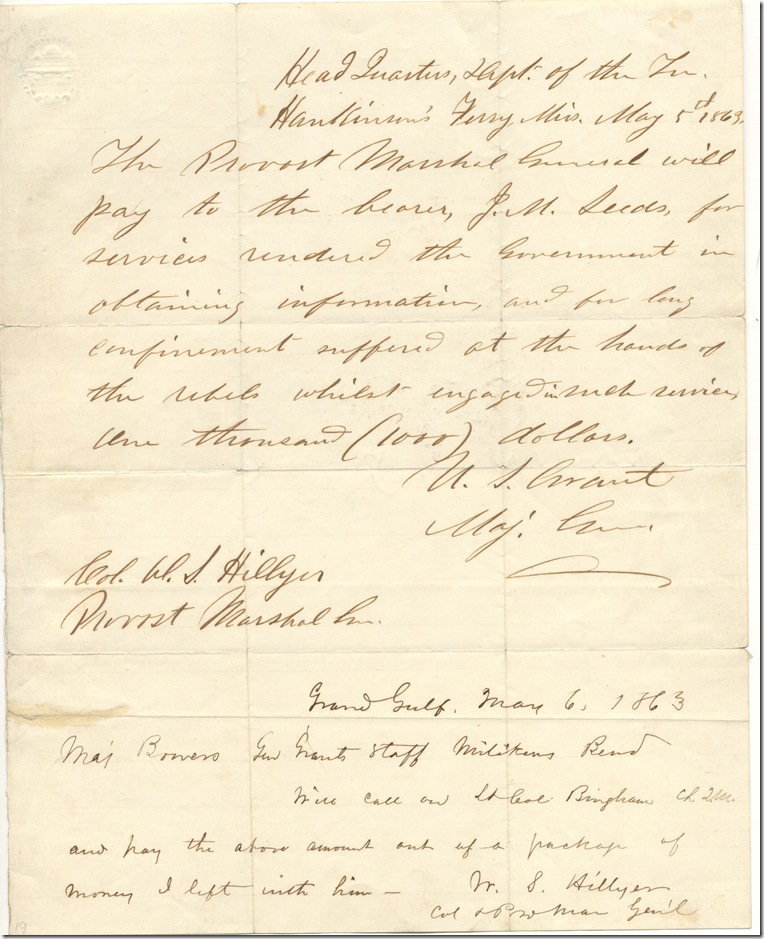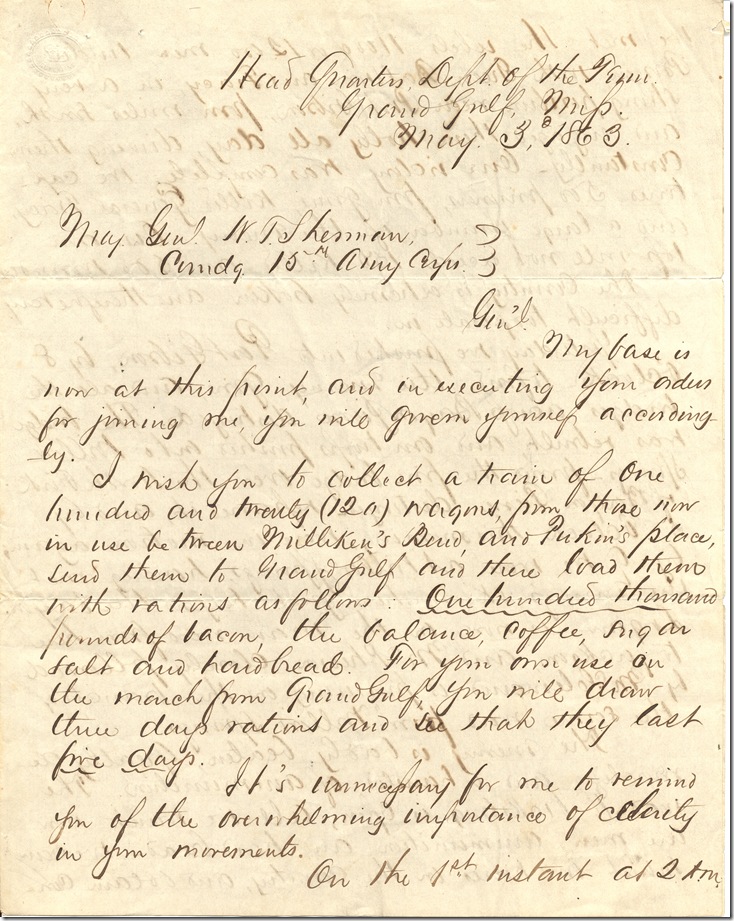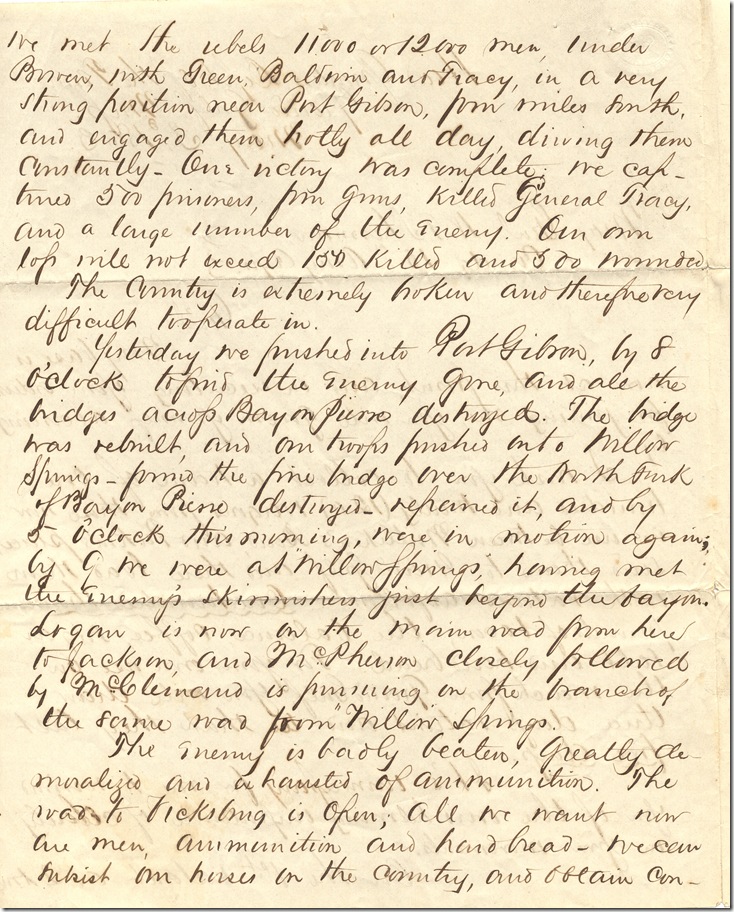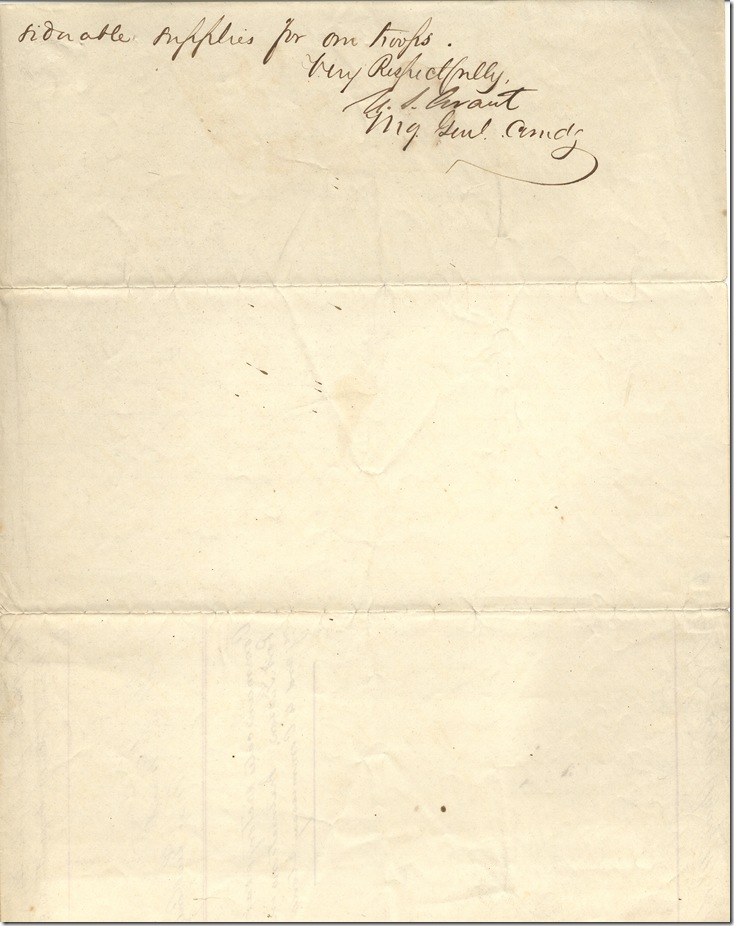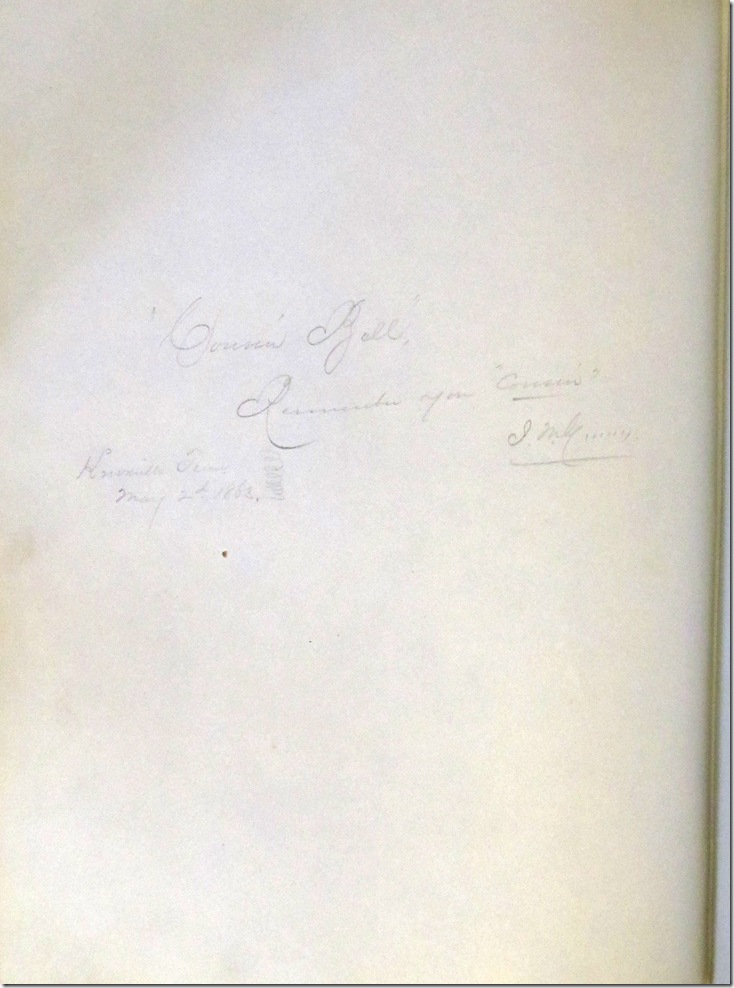Henry and Mary Warner lived in Allegheny City, Pennsylvania, now part of Pittsburgh. They are the great-grandparents of poet Marianne Moore. By the 1860s they had three surviving children: John, Henry, and Anne. Their letters to John, a Presbyterian minister living in Gettysburg, are preserved as part of Marianne Moore’s family papers.
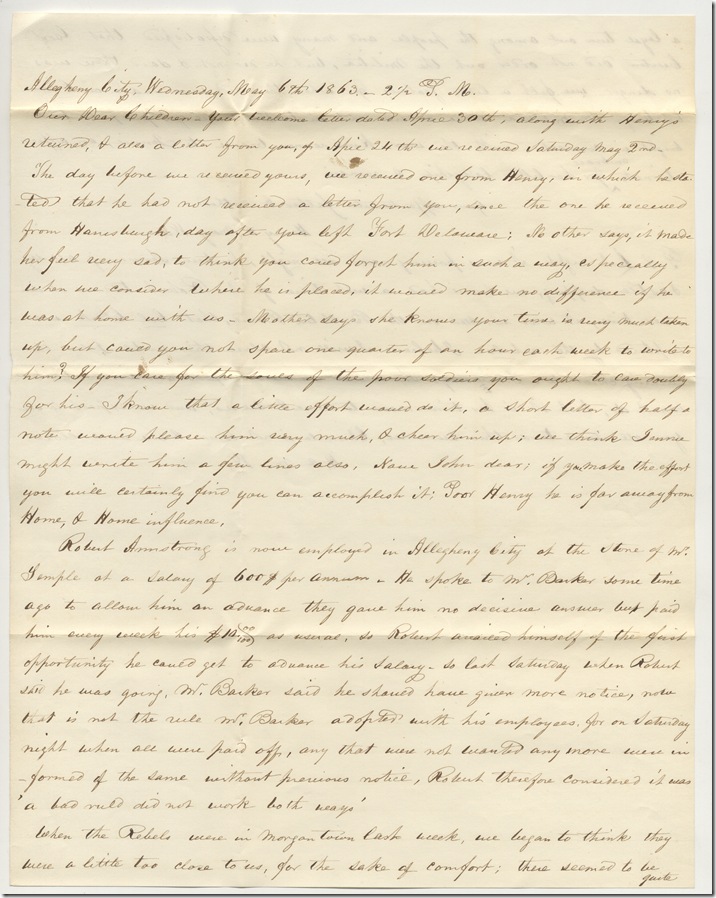
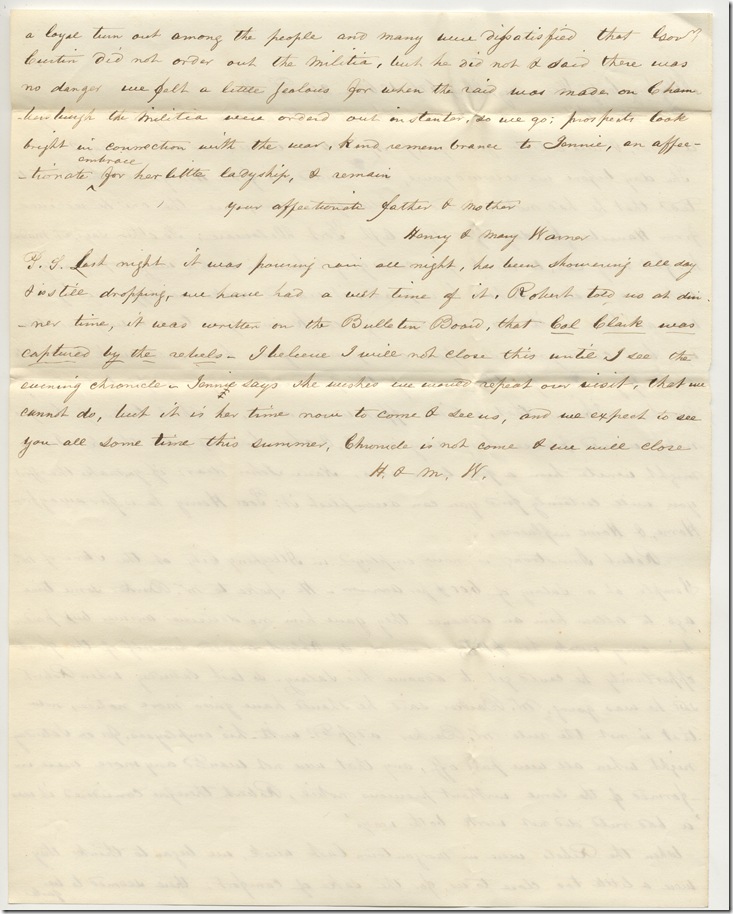
Transcript:
Allegheny City, Wednesday, May 6th 1863—2 ½ P.M.
Our Dear Children—Your welcome letter dated April 30th, along with Henry’s returned, & also a letter from you, of April 24th we received Saturday May 2nd—The day before we received yours, we received one from Henry, in which he stated that he had not received a letter from you, since the one he received from Harrisburgh, day after you left Fort Delaware; Mother says, it made her feel very sad, to think you could forget him in such a way, especially when we consider where he is placed, it would make no difference if he was at home with us—Mother says she knows your time is very much taken up, but could you not spare one quarter of an hour each week to write to him? If you care for the souls of the poor soldiers you ought to care doubly for his—I know that a little effort would do it. A short letter of half a note would please him very much & cheer him up; we think Jennie might write him a few lines also, Now John dear, if you make the effort you will certainly find you can accomplish it; Poor Henry he is far away from Home, & Home influence,
Robert Armstrong is now employed in Allegheny City of the store of Wm. Temple at a salary of 600$ per annum—He spoke to Mr. Barker some time ago to allow him an advance they gave him no decisive answer but paid him every week his $10.00 as usual, so Robert availed himself of the first opportunity he could get to advance his salary—so last Saturday when Robert said he was going, Mr. Barker said he should have given him more notice, now that is not the rule Mr. Barker adopted with his employees, for on Saturday night when all were paid off, any that were not wanted any more were informed of the same without previous notice, Robert therefore considered it was ‘a bad rule did not work both ways’
When the Rebels were in Morgantown last week, we began to think they were a little too close to us, for the sake of comfort; there seemed to be quite a loyal turn out among the people and many were dissatisfied that Gov. Curtin did not order out the Militia, but he did not & said there was no danger we felt a little jealous for when the raid was made on Chambersburgh the Militia were ordered out instanter, so we go: prospects look bright in connection with the war, kind remembrance to Jennie, an affectionate embrace for her little ladyship, & remain
Your affectionate father & mother
Henry & Mary Warner
P.S. Last night it was pouring rain all night, has been showering all day & still dropping, we have had a wet time of it. Robert told us at dinner time, it was written on the Bulletin Board, that Col Clark was captured by the rebels—I believe I will not close this until I see the evening chronicle—Jennie says she wishes we would repeat our visit, that we cannot do, but it is her time now to come & see us, and we expect to see you all some time this summer. Chronicle is not come & we will close
H. & M. W.
Citation: Henry and Mary Warner, autograph letter signed to John Riddle Warner. Allegheny City [Pittsburgh], 6 May1863. Moore VI:05:19
